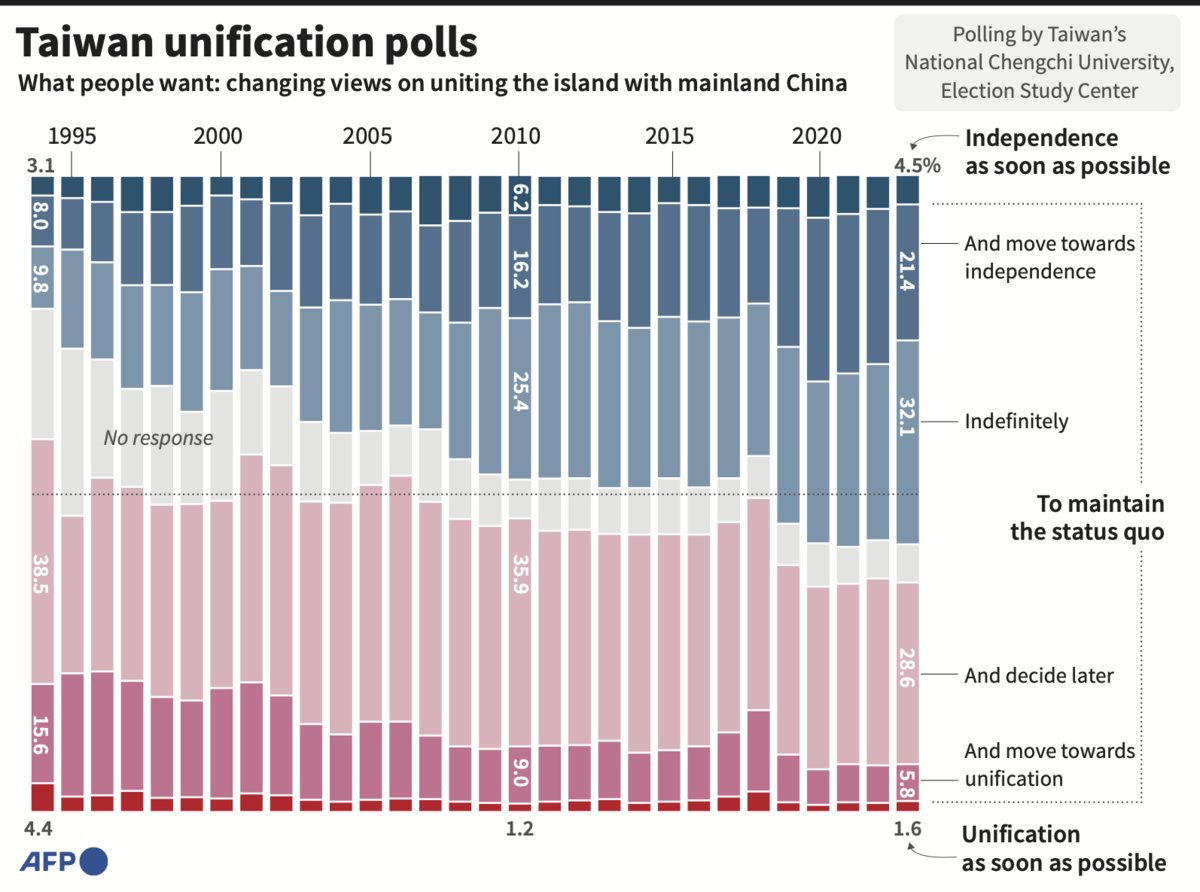TAIPEI: Millions of Taiwanese headed to the polls Saturday for a presidential election in the face of threats from China that choosing the wrong leader could set the stage for war on the self-ruled island.
Beijing slammed frontrunner Lai Ching-te, the current vice president, as a dangerous “separatist” in the days leading up to the poll, and on the eve of the vote its defense ministry vowed to “crush” any move toward Taiwanese independence.
Communist China claims self-ruled Taiwan, separated from the mainland by a 180-kilometer (110-mile) strait, as its own and says it will not rule out using force to bring about “unification,” even if conflict does not appear imminent.
Voting began at 8 a.m. (0000 GMT) at the nearly 18,000 polling stations across the island, with almost 20 million people eligible to cast ballots.
In a Taipei school, 54-year-old professor Karen was the first in line to enter a polling booth.
“I looked into the ballot box and felt that I’ve never been as excited as this moment, because there is one candidate I believe who can bring hope to the future of Taiwan,” she told AFP.

A 70-year-old retiree surnamed Liu arrived early at a New Taipei City elementary school, the same station where current President Tsai Ing-wen will be voting.
“I hope the next administration will do as well as the current one,” she said.
Taiwan has strict election laws for polling day that effectively prevent media from asking voters about their specific choices.
Results are expected Saturday evening, with the outcome watched closely from Beijing to Washington — the island’s main military partner — as the two superpowers tussle for influence in the strategically vital region.
During a raucous campaign, Lai of the Democratic Progressive Party (DPP) pitched himself as the defender of Taiwan’s democratic way of life.
“After I get elected as the president, I will continue to take the path of democracy and peace. I will stand with the international camp of freedom and democracy,” Lai said at his final rally on Friday.
His main opponent Hou Yu-ih, of the opposition Kuomintang (KMT), favors warmer ties with China and accuses the DPP of antagonizing Beijing with its stance that Taiwan is “already independent.”
Hou’s KMT has said it will boost economic prosperity, while maintaining strong relationships with international partners, including the United States.
Taiwan bans the publishing of polls within 10 days of elections, but political observers say the 64-year-old Lai is expected to win the top seat, though his party is likely to lose its parliamentary majority.
The race has also seen the rise of the upstart populist Taiwan People’s Party (TPP), whose leader Ko Wen-je has drawn support with an anti-establishment offer of a “third way” out of the two-party deadlock.
Located on a key maritime gateway linking the South China Sea to the Pacific Ocean, Taiwan is home to a powerhouse semiconductor industry producing precious microchips — the lifeblood of the global economy powering everything from smartphones to cars and missiles.
China has stepped up military pressure on Taiwan in recent years, periodically stoking worries about a potential invasion.
There was a renewed threat from China’s military on the event of the election.
“The Chinese People’s Liberation Army maintains high vigilance at all times and will take all necessary measures to firmly crush ‘Taiwan independence’ attempts of all forms,” defense ministry spokesperson Zhang Xiaogang said in a statement.
Chinese warplanes and naval ships probe Taiwan’s defenses almost every day, and Beijing has in recent years also staged massive war games — simulating a blockade of the island and sending missiles into its surrounding waters.
A blockade would turn the key Taiwan Strait into a chokehold, affecting the transport of 50 percent of the world’s containers and costing the global economy at least $2 trillion, according to one analysis.
Chinese President Xi Jinping in a recent New Year’s address said the “unification” of Taiwan with China was “inevitable.”
Critics of the DPP blame current President Tsai Ing-wen for provoking China by insisting that Taiwan is “already independent,” a stance that Beijing considers a red line.
Under Taiwan law, Tsai can not run again as she has served the maximum two terms.
As well as a president, voters will also elect lawmakers to Taiwan’s 113-seat legislature as well as a president.

























